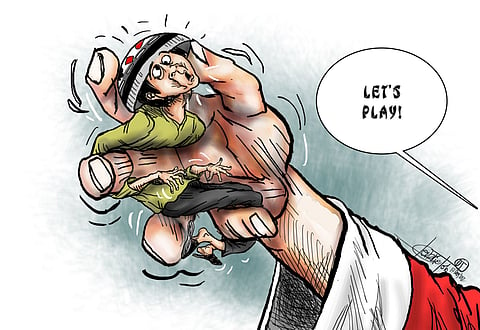
- NEWS
- the EDIT
- COMMENTARY
- BUSINESS
- LIFE
- SHOW
- ACTION
- GLOBAL GOALS
- SNAPS
- DYARYO TIRADA
- MORE

An article on the business website askaviso.com said:
"In a March 2018 report prepared by Leechiu Property Consultants, it was mentioned that the Chinese have replaced the overseas Filipino workers as the largest property buyers in the Philippines, and this is most true for the Manila Bay area, where at least 70% of condominium occupants are mainland Chinese.
"Also, the country and Pagcor benefit from these operators, through the income tax as well as the application, bond, and processing fees, respectively. Just this August 2019, the Bureau of Internal Revenue reported collecting around 200 million pesos worth of taxes from six Pogo companies. The food and hospitality industries also benefit from these Pogos since the migration of foreign workers would mean more customers for both restaurants and hotels. If there is one thing we can derive from this part, it is that real estate-wise, Pogos are advantageous.
At a recent Senate committee hearing on crimes committed recently by foreign nationals, the Philippine National Police said that most kidnapping incidents in 2022 involve shady figures operating among Philippine Offshore Gaming Operators or Pogos.
In fact, the PNP declared, that 15 of 29 kidnappings in 2022, so far, were Pogo-related.
Why kidnap people? Who's kidnapping whom?
These illegal Pogos are into gambling and gamblers who lose big money resort to borrowing cash from the Pogos themselves. When the borrowers fail to pay up, that's when they get kidnapped — the kidnappers giving the borrowers' family members an ultimatum to come up with the money, if they want to want to see their poor loved ones alive.
An article on cdcreports.com provides insights and a better perspective:
"Before the Covid-19-induced lockdown in March of 2020, Pogos and their various affiliate service providers required an army of workers to staff and maintain operations. Among them were approximately 130,000 Chinese nationals, recruited from the People's Republic of China to work in the Philippines for customer relations service providers."
According to Pagcor, its role is to offer customer service to players and cater to their various needs through direct interaction using remote communications devices. These agents are tasked with helping new customers set up accounts, address disputes, and maintain an open dialogue with players.
"130,000 may seem like a lot of people, considering that the vast majority of Asian adults already know how to set up purchasing accounts on their mobile devices. The question that one must ask is, what do 60 online casinos need with 130,000 Chinese nationals when even the largest of the world's integrated casino resorts each employ around 300 people devoted to player services, and all of the integrated casino resorts in Macau employ fewer than 110,000 people, including all the dealers, supervisors, restaurant staff, hotel staff, maintenance, and support staff?"
"These service providers serve a different role: To troll social gaming websites, identify potential customers, and induce those players to sign up for real-money wagering. Then, those agents establish an ongoing dialogue with those players, inducing them to continue wagering through an endless stream of promotional offers. These kinds of marketing tactics, developed over the past 15 years and also adopted by social gaming websites, have proven particularly worrisome to the central government of the People's Republic of China. It also smacks against any responsible gaming initiatives promoted by Pagcor."
Consider, too, current figures that indicate income from Pogos has been going down. Diokno said total revenues from these Pogos amounted to P3.9 billion in 2021, compared to P7.2 billion in 2020.
But it seems there are two kinds of Pogos here: The good Pogos, which are legally registered; and the bad, illegal, unregulated ones. This is a job for the police — how to weed out the bad ones.
